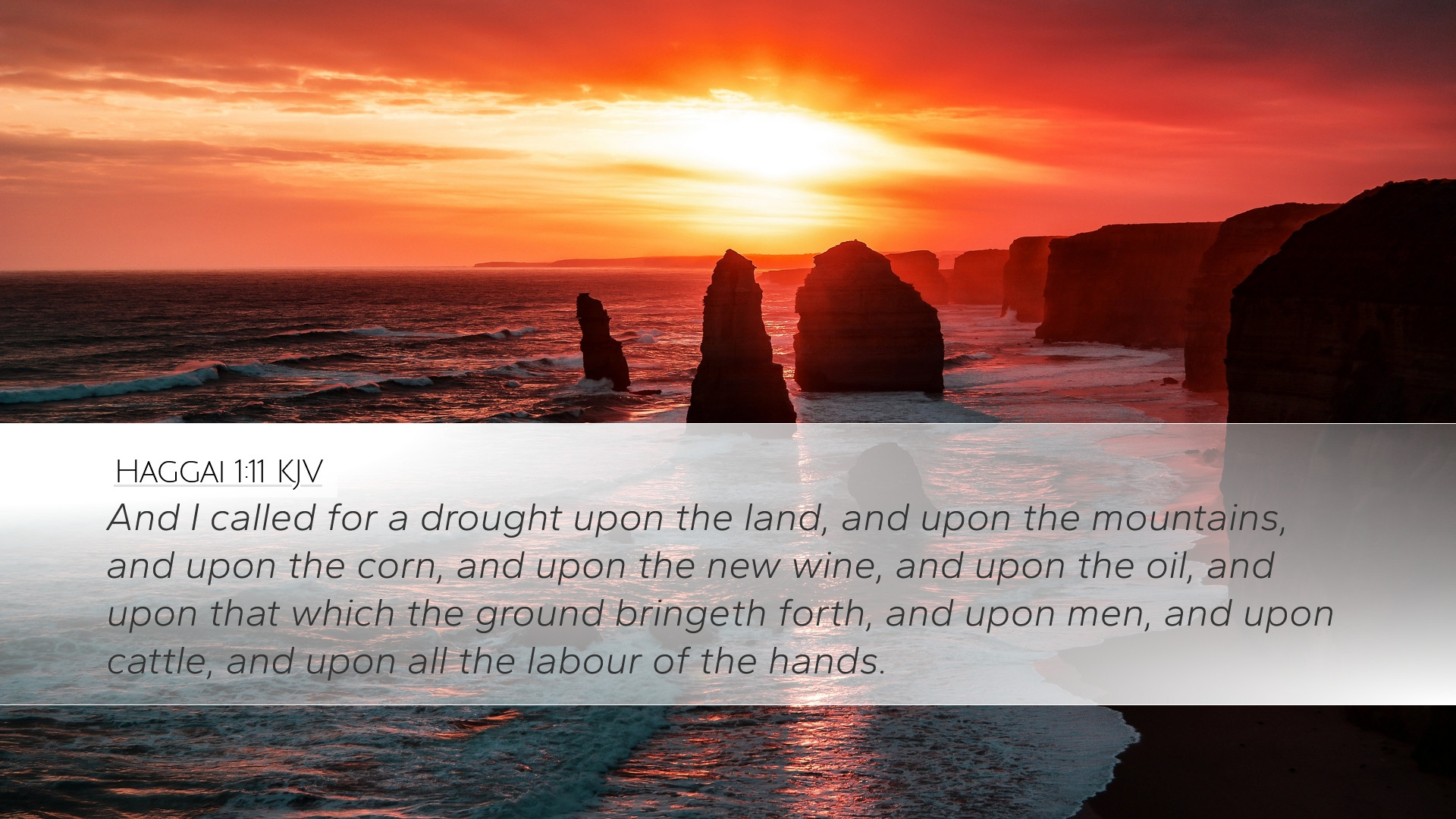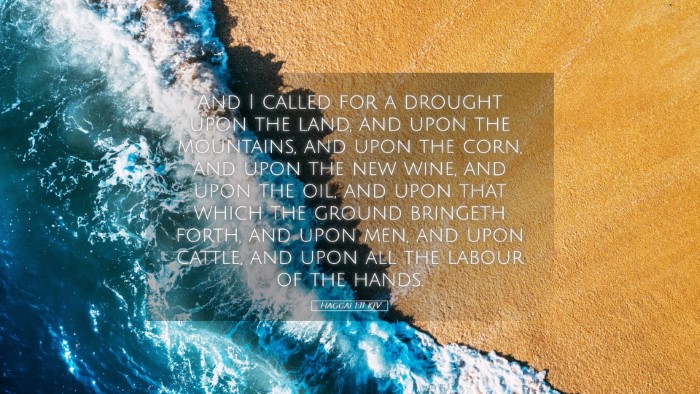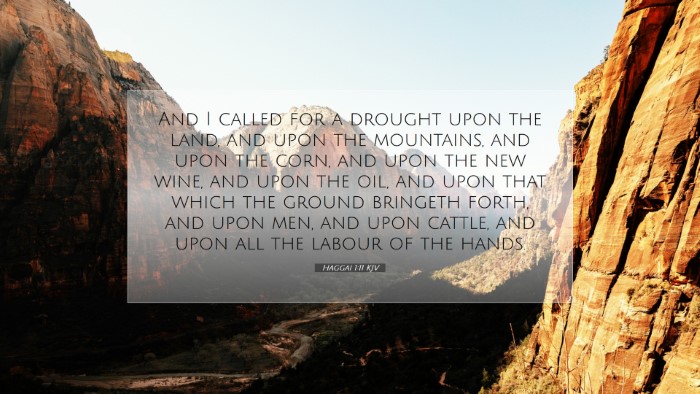Old Testament
Genesis Exodus Leviticus Numbers Deuteronomy Joshua Judges Ruth 1 Samuel 2 Samuel 1 Kings 2 Kings 1 Chronicles 2 Chronicles Ezra Nehemiah Esther Job Psalms Proverbs Ecclesiastes Song of Solomon Isaiah Jeremiah Lamentations Ezekiel Daniel Hosea Joel Amos Obadiah Jonah Micah Nahum Habakkuk Zephaniah Haggai Zechariah MalachiHaggai 1:11
Haggai 1:11 KJV
And I called for a drought upon the land, and upon the mountains, and upon the corn, and upon the new wine, and upon the oil, and upon that which the ground bringeth forth, and upon men, and upon cattle, and upon all the labour of the hands.
Haggai 1:11 Bible Commentary
Commentary on Haggai 1:11
Verse: Haggai 1:11 - "And I called for a drought upon the land, and upon the mountains, and upon the corn, and upon the new wine, and upon the oil, and upon that which the ground bringeth forth, and upon men, and upon cattle, and upon all the labour of the hands."
Contextual Overview
The book of Haggai is a prophetic message delivered to the Jewish people during their return from Babylonian exile. The key directive from the Lord through Haggai was to encourage the rebuilding of the temple in Jerusalem, which had fallen into disrepair. This specific verse encapsulates God's response to the people's neglect of spiritual priorities, particularly in the face of their own material pursuits.
Theological Implications
Haggai 1:11 illustrates the principle of divine providence and sovereignty over the natural world. God’s calling for a drought signifies a withdrawal of blessing in response to the people's disregard for His house. The multifaceted aspects of creation affected by this drought—land, mountains, crops, and livestock—serve as a potent reminder that spiritual neglect often leads to material consequences.
Insights from Commentaries
-
Matthew Henry:
Henry emphasizes the direct relationship between Israel’s disobedience and God’s punitive actions. He remarks that a drought is not merely a natural occurrence but a significant covenantal sign of God's displeasure. Henry points out that this drought affected not only the fields but the very heart of the community—its livelihood. The spiritual lapse of the people had tangible repercussions in their daily existence.
-
Albert Barnes:
Barnes elaborates on the specific items mentioned: the "corn," "new wine," and "oil," which represent the staples of life and the blessings of God. He notes that the divine chastisement extends beyond agriculture to include "men" and "cattle," indicating a holistic impact on society. Barnes concludes that this was a wake-up call for the people, urging them to realign their priorities towards God’s directive.
-
Adam Clarke:
Clarke provides a historical-theological analysis, noting that the drought served as a pedagogical tool from God to redirect the rebellion of His people. He instructs that the call for drought is reflective of God's governance, where blessings and judgments are intertwined. Clarke underscores the fact that even the labor of human hands is subject to divine oversight—further stressing the necessity of seeking God in every endeavor.
Practical Application
This verse poses probing questions for contemporary readers: How does our negligence in spiritual matters affect our material lives? Just as the Israelites were reminded of their priorities, modern believers are called to examine whether they are prioritizing God's work over personal aspirations. The effects of neglecting God’s house must motivate us to diligently pursue a life of worship and duty towards the creator.
Additionally, the communal impact of spiritual neglect may serve as a prompt for congregations today to engage in collective repentance and revival. As seen in Haggai’s message, God's discipline is often a means to prompt reflection, leading to restoration.
Conclusion
Haggai 1:11 encapsulates a critical tenet of Scripture: divine warning and human response. The verse serves as a reminder of the multidimensional nature of God’s interaction with humanity. Material crises are often intertwined with spiritual state. It is an invitation for believers to focus on spiritual renewal, claiming God’s promise of provision and blessing when His house is prioritized.


